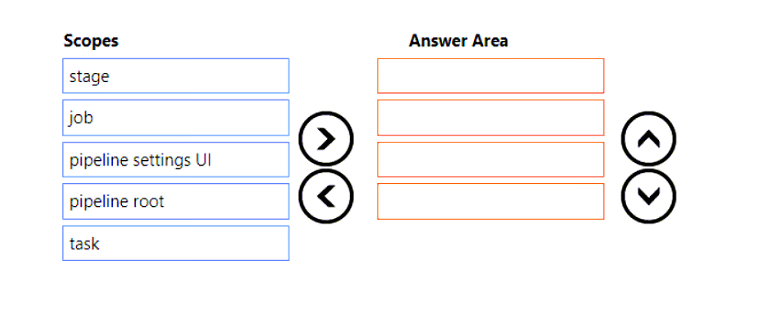DRAG DROP
-
You have an Azure Pipeline.
You need to store configuration values as variables.
At which four scopes can the variables be defined, and what is the precedence of the variables from the highest precedence to lowest precedence? To answer, move the appropriate scope from the list of scopes to the answer area and arrange them in the correct order.

